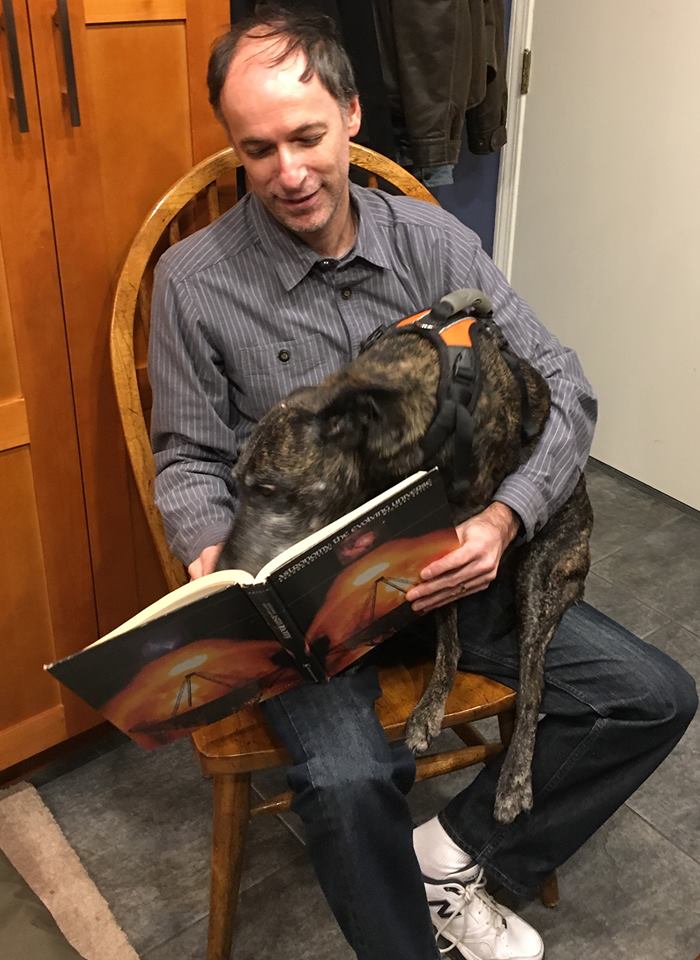Rick is part of the Supernova (SN) group in DES – where we discover thousands of Type Ia SNe and use them to probe properties of dark energy. Earlier this year he wrote a paper describing how we find SNe. Now that the SN search is going pretty smoothly, he is finally getting more involved in the analysis of the data. His official DES roles include co-organizing the SN working group of about 40 people. He is also a member of the publication board, which means that he does the final review for 1 out of every dozen papers and certifies that it’s ready for publication. Lastly, at each collaboration meeting (twice per year) there is a soccer match where he usually plays defensive back for the American team. At the first match a few years ago in Barcelona, he learned the hard way why we shouldn’t wear glasses on the playing field.
We asked Rick a few more questions — here’s what he had to say:
What is your favorite part about being a scientist?
I actually get paid to work on a fantastic hobby, and every day is different with new challenges.
When did you know you wanted to be a scientist?
Well, this is a bit silly, but true. As a sophomore at Royal high school in Simi Valley CA, I was essentially forced into a physics class because the other science classes were full. And I struggled. One day, out of frustration trying to do homework, I flipped all the way to the back of the book to see what awful stuff was in the last chapter. It was an introduction to quantum mechanics. I started reading and didn’t stop until the end, and was disappointed that there wasn’t more to read (no internet back then). I realized that physics was really amazing and I wanted to learn more. And today, I am still trying to learn more about physics.
Do you have any hobbies or play any sports?
I used to play tennis, but had to stop because of back problems. Then I started climbing stairs in my 29 story building where I live, and it really helped my back, plus the cardio benefits. I also provide a safety service by reporting dead light bulbs in the stairwell that serves as a fire escape. After a few years of climbing and healing my back, I finally started doing competitive climbs including the Hancock tower, Sears tower, Aon building and Presidential Towers.
What is your favorite space-related image, and why?
I was always interested in what we can’t see, so this is a bit of a trick question. I worked on particle physics experiments for a long time, and you can’t see those sub-atomic particles flying at nearly the speed of light. Now I work on measuring properties of dark energy, and the word “dark” says it all. However, I must admit that I enjoy watching those really cool 3D movies of computer-simulated SN explosions. Here is an example: https://www.youtube.com/watch?v=9BP…
If you weren’t a scientist, what would your dream job be?
If I were good enough in tennis, I probably would have tried to go pro. Fortunately, I realized that I was not good enough so I ended up with a scholarship to study instead of playing tennis. However, I really had fun playing on the tennis team in high school, and I strongly encourage extra-curricular activities in addition to formal studies.
Any advice for aspiring scientists?
Working in science is a privilege, so always make the best of any opportunity. Research is hard because you are trying to do something that nobody (or few) has done, so it’s going to take extra effort beyond your initial expectations.
